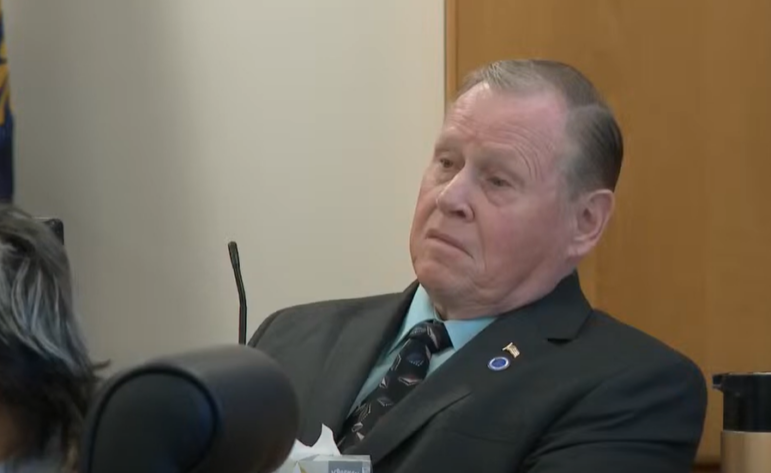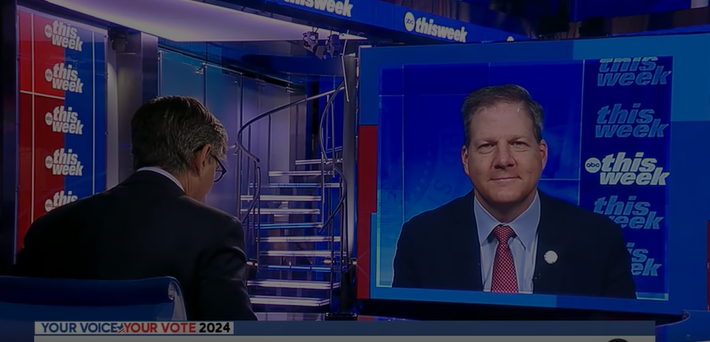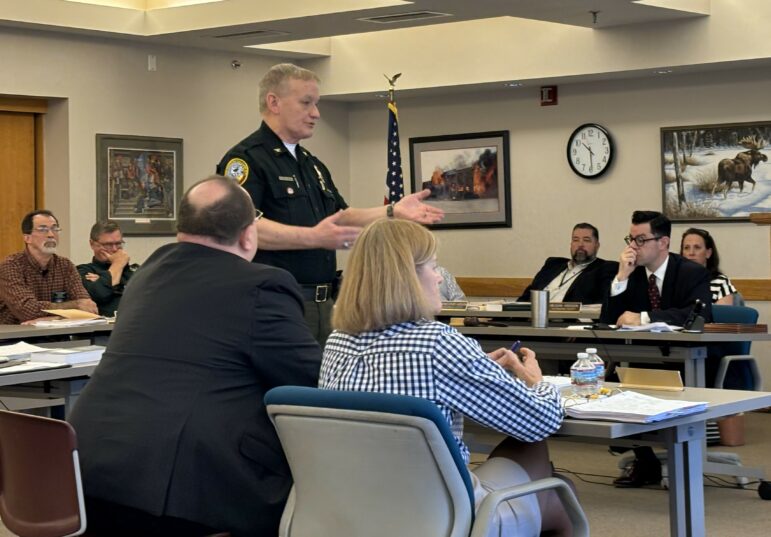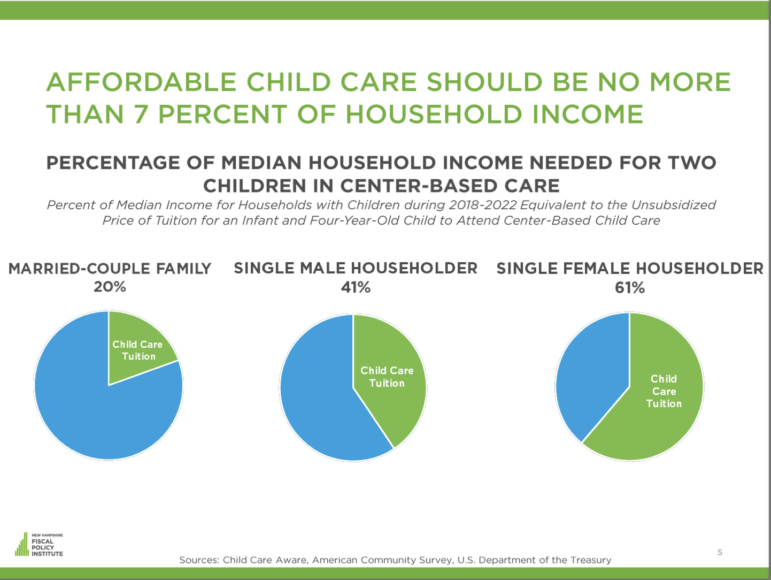
By GARRY RAYNO, InDepthNH.org
The summer is nearly over with August’s end approaching, college students returning to campuses, a hint of color in the leaves and vacations in rear-view mirrors.
In the Granite State, the political intramural is about to decide which candidates are in November’s main event and which ones have to wait two years to try again.
Whether you are a Democrat, a Republican or an unaffiliated voter, some of the most significant issues in a generation wait for the winners beyond the November general election.
Every voter going into the voting booth this year should know who they are voting for, and the beliefs and principles that guide that person before you ever darken the circle next to their name.
The country and the state are at tipping points and this is as important an election as the 2020 was and the 2024 will be.
Because of events during the past two years, involving every branch of the federal government, states have a far greater say in some of the most controversial issues facing the country and the state, from abortion to gun control and how taxpayers’ education dollars are spent.
Abortion
Perhaps the biggest issue the US Supreme Court handed off to states this year when it overturned the long-standing Roe vs. Wade decision was abortion.
With the court’s action, states will decide one-by-one whether women will have access to abortion services within their borders and in some cases beyond.
Many states had trigger laws that prompted lawmakers to eliminate all or nearly all abortions and related services once Roe vs. Wade was overturned.
Consequently16 states have all but outlawed abortion medical procedures, some others outlawed pharmaceutical procedures and some make it illegal for their female residents to travel to other states to have abortions.
Texas and several other states have adopted a vigilante system to reward those who turn in women and those who help them receive an abortion.
A similar law never made it out of the House in New Hampshire last year, but will almost certainly be introduced again.
As many know, the first abortion ban — after the 23rd week — was approved in New Hampshire last year included in the state’s two-year operating budget.
The ban was a tough sell on its own and including it in the budget provided “cover” for the prohibition that still does not include exemptions for rape or incest. It also provided cover for Gov. Chris Sununu who says he is pro-choice, but said he would not veto the budget because of the ban.
Noted anti-abortion lawmakers have said they intend to try to further restrict abortion access in coming sessions and want to see it prohibited altogether eventually.
Reproductive rights is an issue that drives people to the polls for and against and most voters will know where the candidates stand on this issue.
Education
The US Supreme Court opened the door several years ago to using public tax dollars to help private and religious schools, but threw the door wide open this term with its decision in Carson vs. Makin dealing with Maine’s tuition assistance program.
The decision essentially says the state has to fund religious education at private religious schools under public education aid programs.
Earlier rulings by the court allowed the Republican-controlled legislature to expand tuition programs to religious schools, not just private schools as New Hampshire has done in the past.
The ruling came after the state approved — again in the two-year operating budget — what at the time was the most expansive school voucher program in the country.
The program allows parents to use the money that would have gone to a public school in adequacy aid for their student for private, religious, homeschool, or specialized instruction or materials and equipment.
The program was estimated to cost about $400,000 the first year, but instead grew to between $8 million and $9 million when parents of students in private and religious schools the year before, applied for the grants.
The state constitution still prohibits spending state taxpayer money on specific religious instruction, i.e. the state should not be favoring one religion over another, but the program has few guardrails to prohibit parents from using the money that way.
Also in the budget package, lawmakers included a modified divisive concepts law prohibiting teaching one race or ethnic group is inherently superior or inferior to another.
Educators have sued over the new law claiming it harms the educational process. One group offered a bounty for the conviction of the first teacher convicted of breaking the law.
The bounty offer drew national attention.
Proponents of the prohibition tried to expand restrictions this session but failed, and also failed to extend the provision to colleges and universities.
Such initiatives are pushed by the libertarians/free staters in their attempt to do away with publicly funded education.
People also need to ask candidates what they intend to do about the state’s education funding system which depends on local property taxes for a majority of the funding.
Until the funding system is fixed, any major changes in public education will be difficult.
Tax Structure
Changing the state’s tax structure is the third rail of state politics, but a recent influx of federal pandemic money and the profits it produced for many large companies, has left the state with $400 million revenue surplus last fiscal year, but much of the money has already been spent.
Lawmakers have also been reducing the rates of business taxes, the rooms and meals tax and this fiscal year the interest and dividends tax begins to phase out.
A change in the method of collecting the business profits tax begins this year and has many budget writers nervous and a $100 million increase in the statewide property tax next fiscal year may prove to be the triggers needed to look at overhauling a tax system that has largely gone unchanged since the 1990s and the advent of the business enterprise tax.
Energy costs
The days of cheap natural gas and oil are over due to the increase in world demand as countries navigate ways to deal with the pandemic.
New Hampshire and the Northeast felt the effects of rising natural gas prices last winter as more and more of the commodity was shipped to Europe and Asia.
The Russian invasion of Ukraine made the price of energy go up even more.
Places outside New Hampshire saw the increase blunted a bit with greater use of renewable hydro, solar and wind produced energy not dependent on the price of fossil fuel.
New Hampshire has been slow to embrace renewable energy or at least the governor has been as he has vetoed a number of bills that would have headed the state in that direction.
Instead of blaming federal officials, voters should ask state candidates what side they are on with renewable energy and what the state is doing to make electric vehicles more practical for owners.
These issues are but four the state faces now and into the immediate future.
Others are also lurking such as voting rights, access to healthcare, long term care, affordable housing and the effects of climate change on the state’s tourism industry.
People should know what candidates believe and who they are and not just their sloganeering heard so often today.
The New Hampshire legislature does receive pay — $100 a year — to ensure you at least get your money’s worth when you vote for a candidate.
Winning candidates should reflect what the majority of a state’s citizens want, not what national organizations and parties want.
Garry Rayno may be reached at garry.rayno@yahoo.com.
Distant Dome by veteran journalist Garry Rayno explores a broader perspective on the State House and state happenings for InDepthNH.org. Over his three-decade career, Rayno covered the NH State House for the New Hampshire Union Leader and Foster’s Daily Democrat. During his career, his coverage spanned the news spectrum, from local planning, school and select boards, to national issues such as electric industry deregulation and Presidential primaries. Rayno lives with his wife Carolyn in New London.





